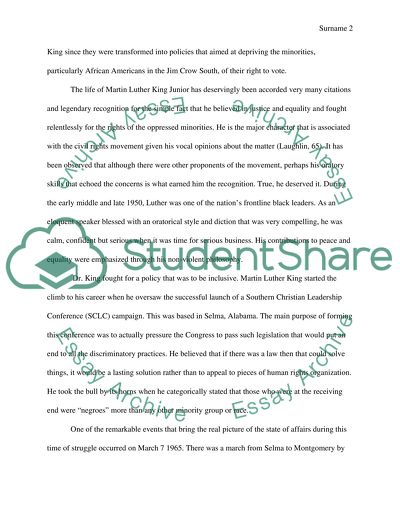Cite this document
(“Did Lyndon Baine Johnson or Martin Luther King have a bigger impact on Research Paper”, n.d.)
Did Lyndon Baine Johnson or Martin Luther King have a bigger impact on Research Paper. Retrieved from https://studentshare.org/history/1591309-did-lyndon-baine-johnson-or-martin-luther-king-have-a-bigger-impact-on-the-voting-rights-act-of-1965
Did Lyndon Baine Johnson or Martin Luther King have a bigger impact on Research Paper. Retrieved from https://studentshare.org/history/1591309-did-lyndon-baine-johnson-or-martin-luther-king-have-a-bigger-impact-on-the-voting-rights-act-of-1965
(Did Lyndon Baine Johnson or Martin Luther King Have a Bigger Impact on Research Paper)
Did Lyndon Baine Johnson or Martin Luther King Have a Bigger Impact on Research Paper. https://studentshare.org/history/1591309-did-lyndon-baine-johnson-or-martin-luther-king-have-a-bigger-impact-on-the-voting-rights-act-of-1965.
Did Lyndon Baine Johnson or Martin Luther King Have a Bigger Impact on Research Paper. https://studentshare.org/history/1591309-did-lyndon-baine-johnson-or-martin-luther-king-have-a-bigger-impact-on-the-voting-rights-act-of-1965.
“Did Lyndon Baine Johnson or Martin Luther King Have a Bigger Impact on Research Paper”, n.d. https://studentshare.org/history/1591309-did-lyndon-baine-johnson-or-martin-luther-king-have-a-bigger-impact-on-the-voting-rights-act-of-1965.


